
Feb 5, 2018
Hundreds of women in western Zimbabwe who have waged a week-long sit-in at Hwange Colliery Co. Ltd. (HCCL), demanding unpaid wages for their husbands who labor in the company’s coal mines, say they are set to march to tourist-packed Victoria Falls. There, says the women’s spokesperson, Thokozile Ncube, “we will tell the world everything about the company and how our government has failed us.”
Carrying placards reading, “Five years no pay, but going to work everyday,” and “Enough is enough,” the women say they are not satisfied with the response of a former government minister who spoke with them Friday and said he would take their concerns to the president. The women vowed that if their husbands do not receive the wages owed since 2014 by February 15, they will march to Victoria Falls, some 62 miles to the north.
They also demand the resignation of the company’s CEO, who they say has not fulfilled a 2016 High Court order compelling management to pay workers’ back wages.
The women launched their action January 29 with a peaceful rally and have remained at the company’s headquarters, despite heavy rains. Last week, the National Mineworkers Union of Zimbabwe (NMWUZ) provided a tent to shelter the women.
Several thousand miners work in open-pit mines extracting millions of pounds of coal each month for use by power stations and in iron and steel smelting. Most of the workers live in houses in the mining village.
According to news reports, HCCL has been paying miners 50 percent of their salaries since the beginning of 2016 and last June, the company paid 7 percent of the employees’ 2014 outstanding wages.
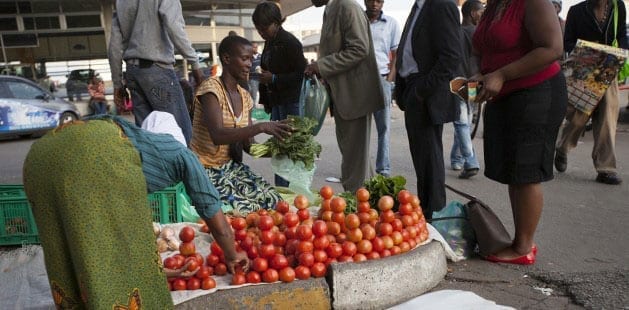
Oct 11, 2017
The government in Zimbabwe is moving to ban market vendors in Harare at a time when more than 90 percent of the workforce labors in the informal economy and 85 percent or more Zimbabweans are seeking decent work.
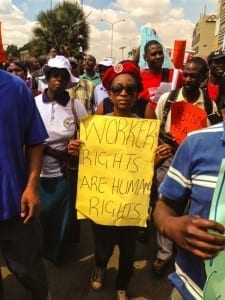
Zimbabweans are struggling for their fundamental right to earn a living. Credit: Thando Khoza
“People who are into street vending are not into it for their liking, but are being forced due to the collapsed economy,” the Zimbabwe Congress of Trade Unions (ZCTU) says in a statement.
“Instead of harassing vendors, the government must first of all restore economic growth and create the promised 2.2 million jobs. By doing so, all vendors will vanish overnight,” says ZCTU.
The Zimbabwe Chamber of Informal Economy Associations (ZCIEA), which represents some 200,000 members, has been seeking to address challenges identified by government and business in negotiations with the Harare central business district since January, and urges that “Operation Restore Order” ordered by the Harare City Council acting town clerk not be implemented.
“The laws and regulations which govern the informal economy are very much outdated and informal economy traders are always criminalized or termed illegal,” ZCIEA says in a statement. ZCIEA says the government’s designated vending sites are not accessible to customers because of their distance, and urges continued discussion among vendors and central business district representatives.
Since 2011, more than 6,000 companies have closed, leaving hundreds of thousands without employment. Even those with formal economy jobs are not paid on time, according to the Solidarity Center report, “Working Without Pay: Wage Theft in Zimbabwe.”

Zimbabwe street vendors also were targeted with eviction in 2016 and protested the move in Harare. Credit: Solidarity Center
Many people have turned to street vending after losing their jobs, and the 2.2 million market vendors now generate an average $3.96 billion in annual revenue. The number of market vendors also has increased because people are struggling to get by following a recent sharp hike in prices for basic goods.
The government waged a similar crackdown on market vendors in 2015, tearing down market stands and forcing vendors to pay high fees to set up stalls at government-approved sites.
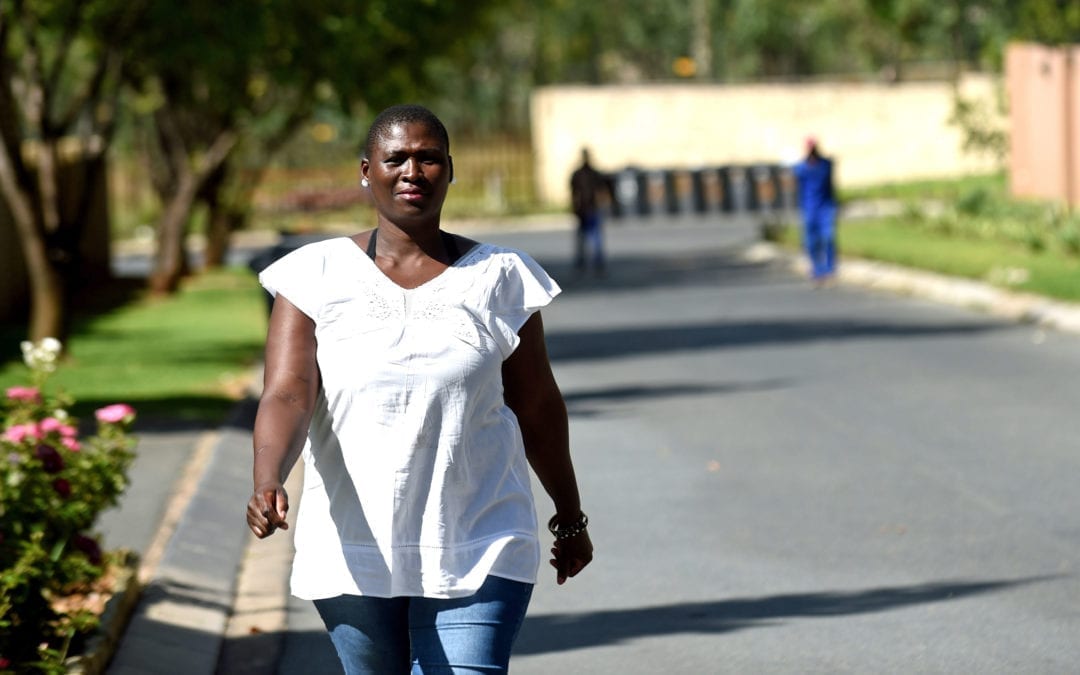
Sep 22, 2017
Prexedes, a domestic worker from Zimbabwe in South Africa, says migrant workers in South Africa often are paid lower wages and suffer harsher working conditions than their South African counterparts.
But after joining a union, Prexedes says she has a better salary, better working hours, weekends off and more.
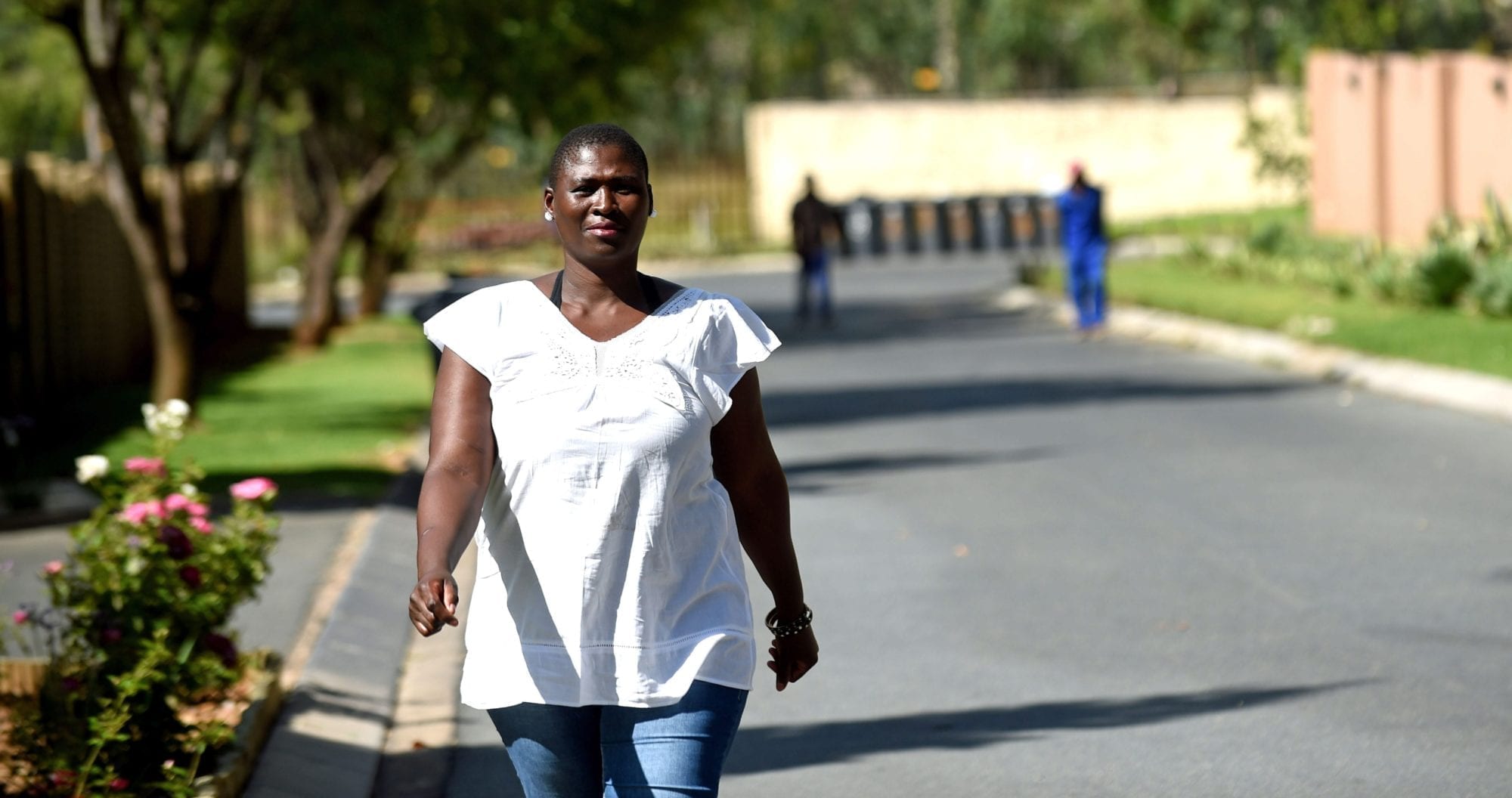
Sep 22, 2017
Prexedes, a domestic worker from Zimbabwe in South Africa, says migrant workers in South Africa often are paid lower wages and suffer harsher working conditions than their South African counterparts. Supporting her three children on her own, Prexedes struggled to pay for transportation to work and food for her family, and often worked overtime for no pay.
But now that she joined the South African Domestic Service and Allied Workers Union (SADSAWU), a Solidarity Center partner, she says “a lot has changed.”
“Since I have joined a union, my life has improved, with the hours I am working and the salary I am getting,” she says.
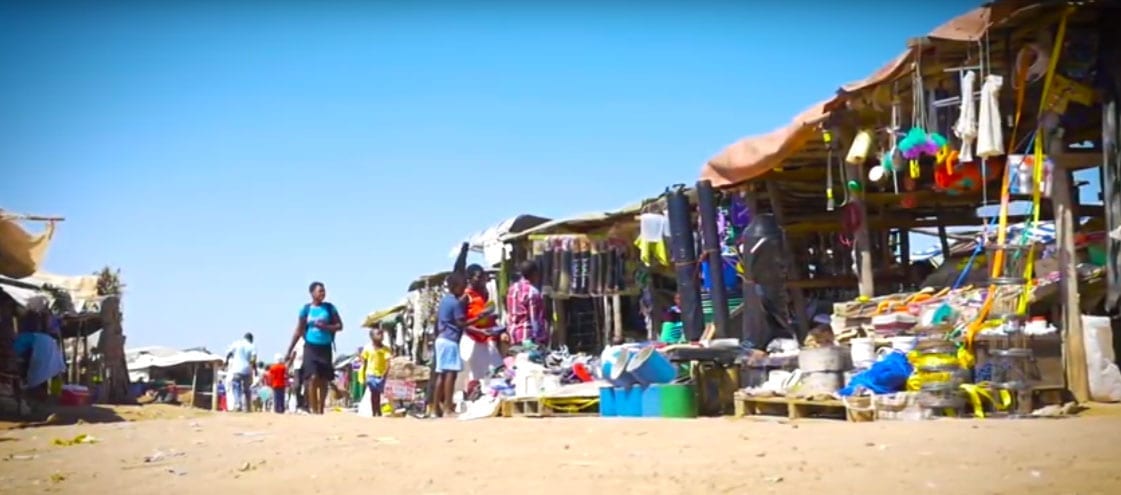
Nov 15, 2016
In Binga, a small community 400 miles west of Harare, Zimbabwe’s capital, residents support themselves and their families fishing the vast Lake Kariba. With no industry in the area, they depend on the lake for their livelihoods. Yet they say they face constant challenges in making a living—the biggest of which is harassment from officials.

“We are oppressed by the … authorities. Our fish are confiscated”—Alice Mudenda, a fisher in Binga Credit: ZCIEA
“We are oppressed by the … authorities,” says Alice Mudenda, a fisher in Binga. “Our fish are confiscated by either the police, rural district council or National Parks officials under unclear circumstances.”
Binga fishers must have a license to fish—yet it only can be obtained in Harare, an eight-hour journey, and the cost, up to $2,000 every three months, is well beyond their means.
Some 94 percent of Zimbabwe workers make their living outside the formal economy, and yet like Mudenda, they say they are harassed and bullied by authorities, according to a survey by the Zimbabwe Chamber of Informal Economy Associations (ZCIEA), a Solidarity Center ally.
81% of Zimbabwe Informal Economy Workers Bullied or Threatened
Eighty-one percent of the 514 respondents say they have been bullied, with 22 percent specifying that the harassment involved both confiscation of goods and threats of violence.
Some 36 percent noted the source of harassment stemmed both from the local authorities and the Zimbabwe Republic Police, the national police force of Zimbabwe, with 32 percent citing local authorities as the biggest source of harassment.
The ZCIEA survey also found widespread fear and distrust of law enforcement officers, with 82 percent of respondents saying they had not reported their harassment to police because police are the harassers (46 percent) or they fear police (17 percent).
Market Vendor Law Targets Livelihoods
In June, the Zimbabwe government introduced a statutory law that bans imports of basic commodities—a law that directly affects hundreds of thousands of informal economy workers who survive on cross-border trading. Merchants in towns like Beitbridge, which borders South Africa, reported plummeting sales after the law’s passage.
Tens of thousands of market vendors protested the new law, joined by civil servants outraged over the government’s refusal to pay their salaries, holding a successful one-day shut-down of businesses, government and services July 6.
The survey covered 25 areas across the country, with 53 percent of respondents women and 40 percent men (7 percent did not answer). The majority are between ages 35 and 44 (35 percent), followed by 25–34 years (27 percent) and 45–54 years (16 percent).
ZCIEA was formed in 2004, when the Zimbabwe Congress of Trade Unions (ZCTU)/Commonwealth Trade Union Council (CTUC) project began working with 22 trader associations to launch an umbrella organization to better coordinate efforts.
ZCIEA, with 198,466 registered members, offers training and legal support, along with legislative advocacy. In the report, the association points to the need to address the widespread harassment of informal economy workers by developing programs that further empower members, including workshops on legal rights and representation and preventing sexual harassment.








